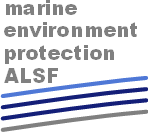- Comments (11)


I am the education coordinator for NOAA’s Monitor National Marine Sanctuary, and I am creating a maritime archaeology curriculum. For a section on magnetometers, I am featuring the Explore the Seafloor website as an outstanding online resource for teachers (very well done!) I would like to use a graphic from the website located on http://ets.wessexarch.co.uk/resources/imagebank/?album=5&gallery=6 It is the image at the far right, top line showing a magnetometer being towed.
I would be most appreciative if you could direct me to whom I should request permission for usage.
Thank you,
Shannon Ricles
shannon.ricles@noaa.gov
757-591-7328 (US)
I would like your permission to use your images in an academic paper. How would you like them cited?
Kind regards,
Rich Hendren
2016 Nautical Archaeology PhD Cohort
Texas A&M University
interested in seeing more.
The Gilberd Academy Colchester’
Careers Convention on 4th October.
Looking for volunteers.
When will the interactive map be available ?
Looks a brilliant idea.
Hi, When will this be completed.
I would like to recommend it regularly for the careers content and fun activities.
The Gilberd Academy , Colchester.
Hi, my name is Annie and me and my friend Ellie want to be SciGirls and study the ocean floor. I think this is a really great way to, since the coranavirus and you can’t really go anywhere, let alone the bottom of the ocean. thank you for making this website and letting people all over the world study the bottom of the ocean and teaching the ways of marine biologists. Thanks again. This is super cool!
Dear Sir,
I am Katia Pinheiro, researcher from Observatório Nacional (Brazil) and at the moment working at GFZ-Potsdam (Germany). My hobby is to produce science outreach videos. Recently I interviewed 10 female scientists (originally from 10 different countries) in Potsdam talking about themes from the core to space:
https://www.dropbox.com/s/gsf60fog2eq9f0f/MagneticMosaic.mp4?dl=0
I would like to ask if I can use your figure:
https://ets.wessexarch.co.uk/resources/imagebank/nggallery/image-bank/how-do-we-map-the-seafloor
in my movie (minutes: 12:39 – 12:47). In case you allow me, should I give credits like that? Figure: Li et al., 2020 – Wessex Archaeology
I would really appreciate your contribution to my movie, which is very important to promote women in science. Thank you!
Best wishes,
Katia
—
Dr. Katia Jasbinschek Pinheiro
Sektion 2.3, Geomagnetismus
Phone: +49 33843 624-30
Email: pinheiro@gfz-potsdam.de
___________________________________
Helmholtz Centre Potsdam GFZ German Research Centre for Geosciences
Adolf-Schmidt-Observatory for Geomagnetism
Lindenstr. 7
14823 Niemegk